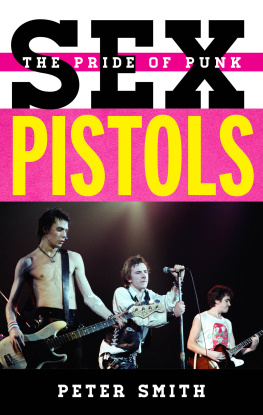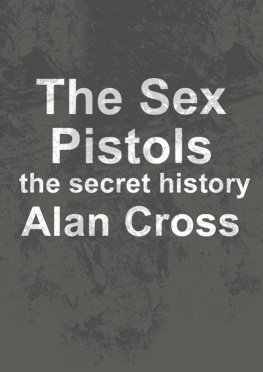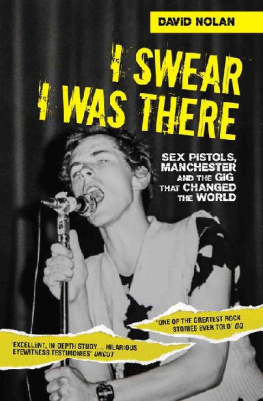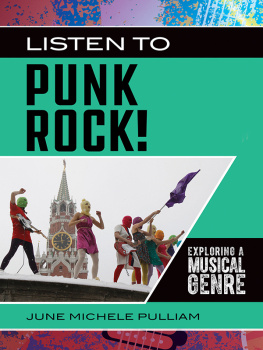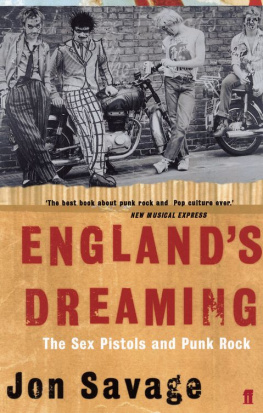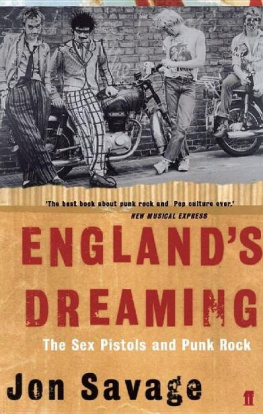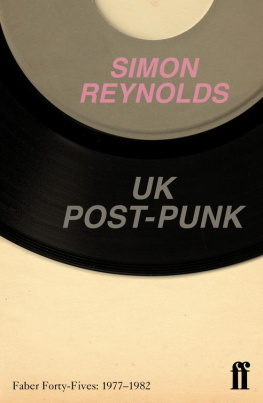Faber Forty-Fives is a series of six short ebooks that between them tell the story of British pop music from the birth of psychedelia in the late sixties, through electric folk, glam, seventies rock and punk, to the eclecticism of post-punk in the late seventies and early eighties. Each book is drawn from a larger work on Fabers acclaimed music list.
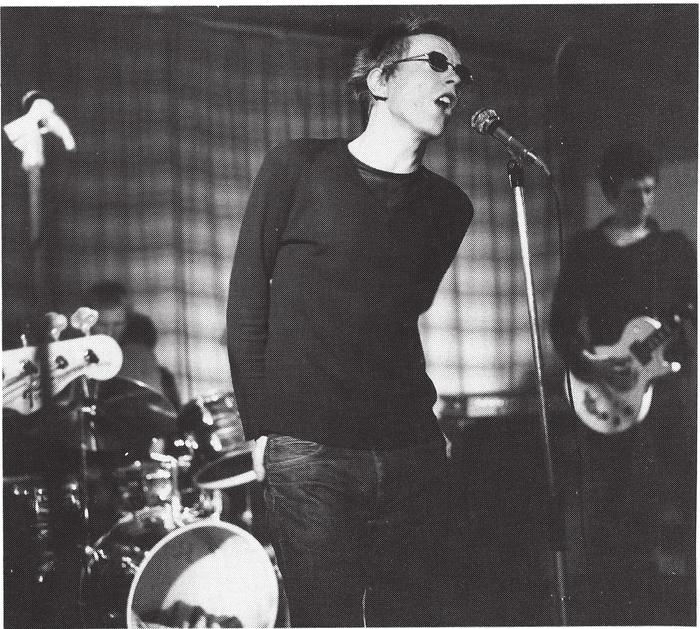
John Lydon at St Albans, Hertfordshire College of Art and Design, February 1976 ( Ray Stevenson)
1
Cant go on/Drag along/Cant go wrong/Sing along/Pied Piper will lead you to the water.
John Lydon for PiL: Pied Piper (1980)
Trying to tart the rock business up is getting nearer to what the kids themselves are like. Because what I find, if you want to talk in the terms of rock, a lot depends on sensationalism, and the kids themselves are more sensational than the stars themselves.
David Bowie: NewMusicalExpress (28 February 1974)
For their first ever gig says Adam Ant, the Sex Pistols were support group to the band I was in, Bazooka Joe. Ill never forget it. They came in as a gang: they looked like they couldnt give a fuck about anybody. John had baggy pinstripe trousers with braces and a ripped-up T-shirt saying Pink Floyd with I Hate over it. Jonesy was tiny, he looked like a young Pete Townshend. Matlock had paint-spattered trousers and a womans pink leather top. Paul Cook looked like Rod Stewart, like a little Mod really.
I watched them play: Malcolm was at the front, orchestrating them, telling them where to stand. Viv was there. There werent many there: maybe a dozen of their people Jordan, Michael Collins, Andy Czezowski. They did Substitute, and Whatcha Gonna Do About It with the lyrics changed: I want you to know that I hate you baby. Then John lost interest. Hed eat sweets, pull them out and suck them and just spit them out: he just looked at the audience, glazed.
There were no guitar solos, it was just simple songs. They did five and that was it: goodnight. The rest of my band hated them because they thought they couldnt play: in fact somebody said as much to Glen and he said: So what? But I thought they were very tight. It was only John who hadnt learned how to make the voice last, but over a fifteen minute burst, he was very clear. At the end Rotten slagged off Bazooka Joe as being a bunch of fucking cunts and our guitarist Danny Kleinman leapt from the front row and pinned John against the back wall: he made him apologize.
It was fucking wild says Steve Jones; I was so nervous I took a mandrax. When we started playing the mandrax was hitting me and I cranked the amp up. It was a 100w amp in a little room with no stage and it was great. Everyone was looking at us. It seemed like millions of people at the time. You could tell there was a buzz. We had carried the equipment over from Denmark Street says Paul Cook, we were all highly charged and nervous. It must have been a terrible racket, because someone pulled the plug on us, there was a big fight.
The impression they left on me was total says Adam. They had a certain attitude Id never seen: they had bollocks and they had very expensive equipment and it didnt look like it belonged to them. They had the look in their eyes that said: Were going to be massive. I stood there transfixed. When Danny jumped John, I didnt jump in to help him. I left Bazooka Joe the next day: I came out of that gig thinking, Im tired of Teddy Boys and it seemed to me that the Sex Pistols were playing simple songs that I could play. I just wanted to go away and form my own band.
Whether they were good or not was irrelevant says Andy Czezowski: I wanted to be excited and they filled a spot. Performers are only as interesting as the emotions that they generate, or the situations that they catalyse: the audience gives them their power. The Sex Pistols began as a hype, a group of four disparate teenagers thrown together to sell trousers, but they quickly became a prism through which the present and a future could be clearly seen.
The power of sound is unpredictable and potentially dangerous. In the Anglo-German folk tale, the Pied Piper is hired to draw away a plague of rats from a large city: cheated by the elders of his fee, he spirits away the children of the city through the sound of his pipe. Lost in the spirit world, they are never seen again. From the very first, the Sex Pistols polarized and galvanized their tiny audiences. We started getting a reaction instantly says Paul Cook, so we thought we must be doing something right.
That reaction was, at first, composed of 50 per cent indifference, 25 per cent hostility, 20 per cent hilarity and 5 per cent immediate empathy. Until their first TV broadcast in August 1976, the only way to see the group was live: for nine months they toured the country. To most of their small audiences, their music was just scraping and gnawing sounds, but at each concert, one or two people listened and, instantly converted, laid aside their previous lives to follow them.
It must have been very satisfying for them to get such a violent response to everything they did says Al McDowell, who was approached by Glen Matlock to put on their second concert, at the Central School of Art, the day after St Martins. They had a mirror standing in front of them all the time. I think the media side of it was very well controlled. It was presented as a package all the time. Graphically it was all together; everything had an atmosphere. It was threatening and there was that feeling of revolt, based on the Paris 68 approach. It was immediately attractive to anyone who was feeling hostile.
On 5 December, McLaren organized a concert at the Chelsea School of Art. For this, their fifth, the group had no support except a disco. There was a little buzz about Malcolms group says Ted Carroll, so he contacted a lot of people and invited them to Chelsea. Roger Armstrong and I went and we thought they were great, because there was so much energy. They were disorganized but powerful. People didnt know what to make of them: there was no definite reference point.
Finding suitable venues for the Sex Pistols quickly became a problem, particularly as McLaren, with his ignorance of the music business, refused to take the easy route. He wanted to avoid the standard Pub-Rock circuit, with its pecking order and its stock responses, but in the pre-video age, live exposure was still the way to gain attention. After studying the music press, McLaren realized that there was still a lively college circuit, but after a few calls, he found that the name Sex Pistols tended to trigger a reaction that, although satisfyingly negative, failed to result in bookings. The only thing to do was to lie and cheat.

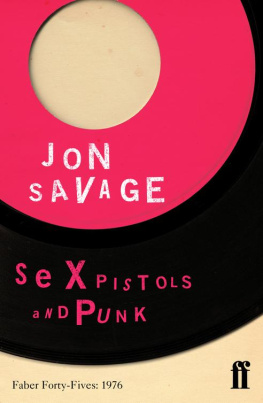
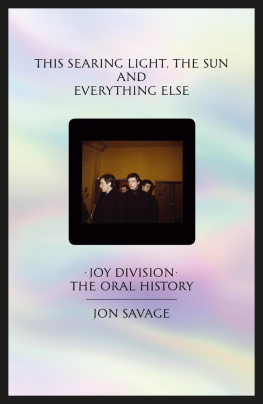
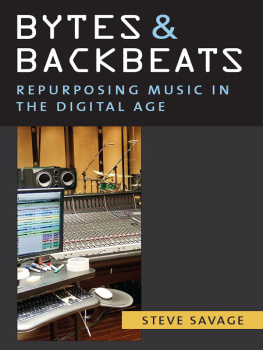

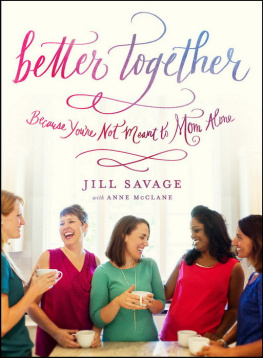
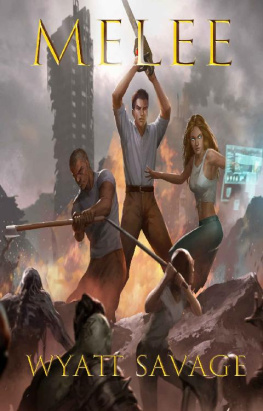
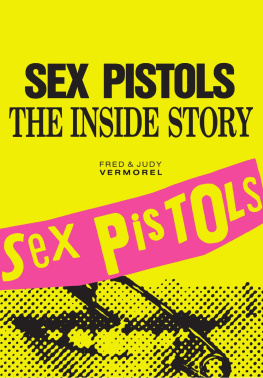
![Marco Thiede - Human Punk For Real: An Autobiography [English Edition]](/uploads/posts/book/391913/thumbs/marco-thiede-human-punk-for-real-an.jpg)
